MARKETING
Sneak Peek: The Initial MozCon 2022 Speaker Lineup
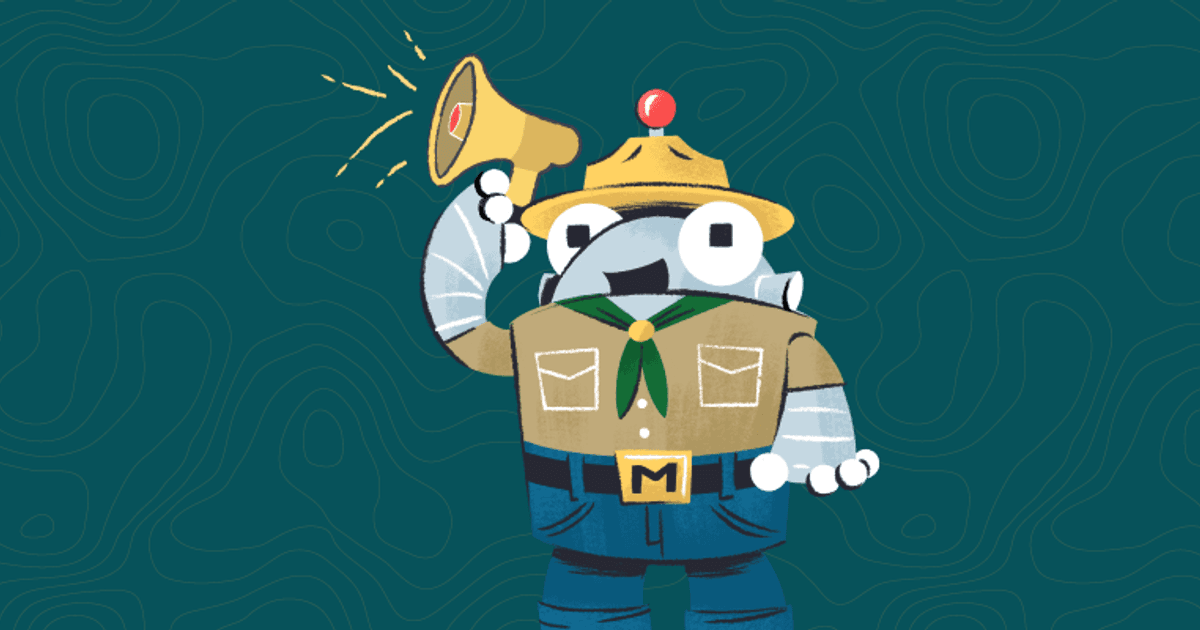
Have you been waiting on the edge of your seat for MozCon to start rolling out the lineup of speakers? Well, my friend, today’s the day so hold on tight!
We’re thrilled to announce the first 15 extraordinary speakers that will be taking the MozCon 2022 stage in Seattle this July (in alphabetical order).
Meet the speakers
Amalia Fowler (she/her)
Founder, Good AF Consulting
@AmaliaEFowler
Amalia is the Founder of Good AF Consulting, a Vancouver, BC consulting firm where she helps companies build great marketing teams. She’s also a marketing instructor at the British Columbia Institute of Technology and creator of The Wholehearted Manager, a newsletter for people who believe in leading with their heart, and that all employees deserve a safe space to work. Amalia has been in search marketing for eight years, with her work focused on helping businesses understand marketing strategy, mentoring new marketers, building exceptional marketing teams and advocating for more ethical and transparent practices in our space. Her favorite saying is “It Depends,” because context is everything.
Amanda Milligan (she/her)

Head of Marketing, Stacker
@millanda | @stacker
Amanda Milligan is the Head of Marketing at Stacker Studio. With a degree in journalism and a decade in content marketing, she’s spent her career helping brands harness the intersection of content and SEO.
Andy Crestodina (he/him)

Co-founder / CMO, Orbit Media Studios
@crestodina | @orbiteers
Andy Crestodina is the co-founder and CMO of Orbit Media, an award-winning 50-person digital agency in Chicago. Over the past 20 years, Andy has provided digital marketing advice to over 1,000 businesses.
Areej AbuAli (she/her)

Head of SEO, Papier (areejabuali.com)
@areej_abuali | @TechSEOWomen
Areej is Head of SEO at Papier where she focuses on all things technical and on-site SEO. She is the founder of the global Women in Tech SEO community and has been in the digital marketing industry for over eight years.
Crystal Carter (she/her)

Head of SEO Comms, Wix
@CrystalontheWeb
Crystal Carter is an SEO and digital marketer with over 15 years experience working with clients like Disney, Tomy, Kikkoman, and more. She shares insights in leading publications like Google Webmaster Central, The Moz Blog, Search Engine Land, and Women in Tech SEO.
Hannah Smith (she/her)

Founder, Worderist
@hannah_bo_banna
With more than 15 years in the SEO industry, Hannah’s creative work has won multiple awards, and she’s worked with a range of companies including the BBC, Dyson, Expedia, MailChimp, and Salesforce.
Jackie Chu (she/her)

SEO Lead, Intelligence, Uber
@jackiecchu
Jackie Chu is currently the SEO Lead, Intelligence for Uber, driving analytics and tooling for the SEO teams globally. She has deep experience in technical SEO, content SEO, ASO and international SEO spanning both B2B and B2C industries.
Joe Hall (he/him)

SEO Consultant & Principal Analyst, Hall Analysis
@joehall
Joe Hall is an executive SEO consultant focused on analyzing and informing the digital marketing strategies of select clients through in-depth data analysis and SEO audits.
Lidia Infante (she/her)

Senior SEO Manager, BigCommerce (lidia-infante.com)
@LidiaInfanteM | @bigcommerce
Born and raised in Barcelona, Lidia has been working in SEO for over eight years. She’s been helping businesses in e-commerce, media and B2B reach their audiences on search across European markets, the US and Australia. She has leveraged her BSc in Psychology and Master’s in Digital Business to drive organic growth for e-commerce sites, media, and SaaS.
Lily Ray (she/her)

Senior Director, SEO & Head of Organic Research, Amsive Digital
@lilyraynyc | @amsive_digital
Lily Ray is the Sr. Director, SEO & Head of Organic Research at Amsive Digital, where she provides strategic leadership for the agency’s SEO client programs. Lily began her SEO career in 2010 in a fast-paced start-up environment and moved quickly into the agency world, where she helped grow and establish an award-winning SEO department that delivered high impact work for a fast-growing list of notable clients, including Fortune 500 companies.
Noah Learner (he/him)

Product Director, Two Octobers
@noahlearner | @twooctobers
Noah is a technical marketer, nicknamed the Kraken, who is happiest building SEO tools, automations, data pipelines and communities. When not in the lab, he loves skiing, fly fishing, camping with his family, and walking his dog, Shadow.
Paddy Moogan (he/him)

Co-Founder, Aira
@paddymoogan | @airadigital
Paddy is co-founder of Aira, a digital marketing agency based in the UK and delivering work across SEO, paid media, content marketing, and digital PR. He has been working in SEO since around 2004 when he got bored studying for his law degree.
Dr. Pete Meyers (he/him)

Marketing Scientist, Moz
@dr_pete | @moz
Dr. Pete is Marketing Scientist for Moz, where he works with the marketing and data science teams on product research and data-driven content.
Tom Capper (he/him)

Senior Search Scientist, Moz
@thcapper | @moz
Tom heads up the Search Science team at Moz, providing research and insight for Moz’s next generation of tools. Previously, he led the London consulting team for SEO agency Distilled, and worked as a chef in a roadside grill.
Wil Reynolds (he/him)

Founder & Vice President of Innovation, Seer Interactive
@wilreynolds | @SeerInteractive
Wil has been leading the charge to leverage “Big Data” to break down silos between SEO, PPC, and traditional marketing — pulling together data from various sources to see the big picture.
Stay tuned for more MozCon updates!
And we’re just getting warmed up! We’ve got lots more incredible speakers to reveal in the coming weeks including our community speaker lineup, but don’t wait to snap your ticket as early bird savings are only available for a limited time and once they’re gone, they’re gone for good.
MARKETING
YouTube Ad Specs, Sizes, and Examples [2024 Update]
![YouTube Ad Specs, Sizes, and Examples [2024 Update] YouTube Ad Specs, Sizes, and Examples](https://articles.entireweb.com/wp-content/uploads/2024/06/YouTube-Ad-Specs-Sizes-and-Examples.jpg)
Introduction
With billions of users each month, YouTube is the world’s second largest search engine and top website for video content. This makes it a great place for advertising. To succeed, advertisers need to follow the correct YouTube ad specifications. These rules help your ad reach more viewers, increasing the chance of gaining new customers and boosting brand awareness.
Types of YouTube Ads
Video Ads
- Description: These play before, during, or after a YouTube video on computers or mobile devices.
- Types:
- In-stream ads: Can be skippable or non-skippable.
- Bumper ads: Non-skippable, short ads that play before, during, or after a video.
Display Ads
- Description: These appear in different spots on YouTube and usually use text or static images.
- Note: YouTube does not support display image ads directly on its app, but these can be targeted to YouTube.com through Google Display Network (GDN).
Companion Banners
- Description: Appears to the right of the YouTube player on desktop.
- Requirement: Must be purchased alongside In-stream ads, Bumper ads, or In-feed ads.
In-feed Ads
- Description: Resemble videos with images, headlines, and text. They link to a public or unlisted YouTube video.
Outstream Ads
- Description: Mobile-only video ads that play outside of YouTube, on websites and apps within the Google video partner network.
Masthead Ads
- Description: Premium, high-visibility banner ads displayed at the top of the YouTube homepage for both desktop and mobile users.
YouTube Ad Specs by Type
Skippable In-stream Video Ads
- Placement: Before, during, or after a YouTube video.
- Resolution:
- Horizontal: 1920 x 1080px
- Vertical: 1080 x 1920px
- Square: 1080 x 1080px
- Aspect Ratio:
- Horizontal: 16:9
- Vertical: 9:16
- Square: 1:1
- Length:
- Awareness: 15-20 seconds
- Consideration: 2-3 minutes
- Action: 15-20 seconds
Non-skippable In-stream Video Ads
- Description: Must be watched completely before the main video.
- Length: 15 seconds (or 20 seconds in certain markets).
- Resolution:
- Horizontal: 1920 x 1080px
- Vertical: 1080 x 1920px
- Square: 1080 x 1080px
- Aspect Ratio:
- Horizontal: 16:9
- Vertical: 9:16
- Square: 1:1
Bumper Ads
- Length: Maximum 6 seconds.
- File Format: MP4, Quicktime, AVI, ASF, Windows Media, or MPEG.
- Resolution:
- Horizontal: 640 x 360px
- Vertical: 480 x 360px
In-feed Ads
- Description: Show alongside YouTube content, like search results or the Home feed.
- Resolution:
- Horizontal: 1920 x 1080px
- Vertical: 1080 x 1920px
- Square: 1080 x 1080px
- Aspect Ratio:
- Horizontal: 16:9
- Square: 1:1
- Length:
- Awareness: 15-20 seconds
- Consideration: 2-3 minutes
- Headline/Description:
- Headline: Up to 2 lines, 40 characters per line
- Description: Up to 2 lines, 35 characters per line
Display Ads
- Description: Static images or animated media that appear on YouTube next to video suggestions, in search results, or on the homepage.
- Image Size: 300×60 pixels.
- File Type: GIF, JPG, PNG.
- File Size: Max 150KB.
- Max Animation Length: 30 seconds.
Outstream Ads
- Description: Mobile-only video ads that appear on websites and apps within the Google video partner network, not on YouTube itself.
- Logo Specs:
- Square: 1:1 (200 x 200px).
- File Type: JPG, GIF, PNG.
- Max Size: 200KB.
Masthead Ads
- Description: High-visibility ads at the top of the YouTube homepage.
- Resolution: 1920 x 1080 or higher.
- File Type: JPG or PNG (without transparency).
Conclusion
YouTube offers a variety of ad formats to reach audiences effectively in 2024. Whether you want to build brand awareness, drive conversions, or target specific demographics, YouTube provides a dynamic platform for your advertising needs. Always follow Google’s advertising policies and the technical ad specs to ensure your ads perform their best. Ready to start using YouTube ads? Contact us today to get started!
MARKETING
Why We Are Always ‘Clicking to Buy’, According to Psychologists

Amazon pillows.
MARKETING
A deeper dive into data, personalization and Copilots
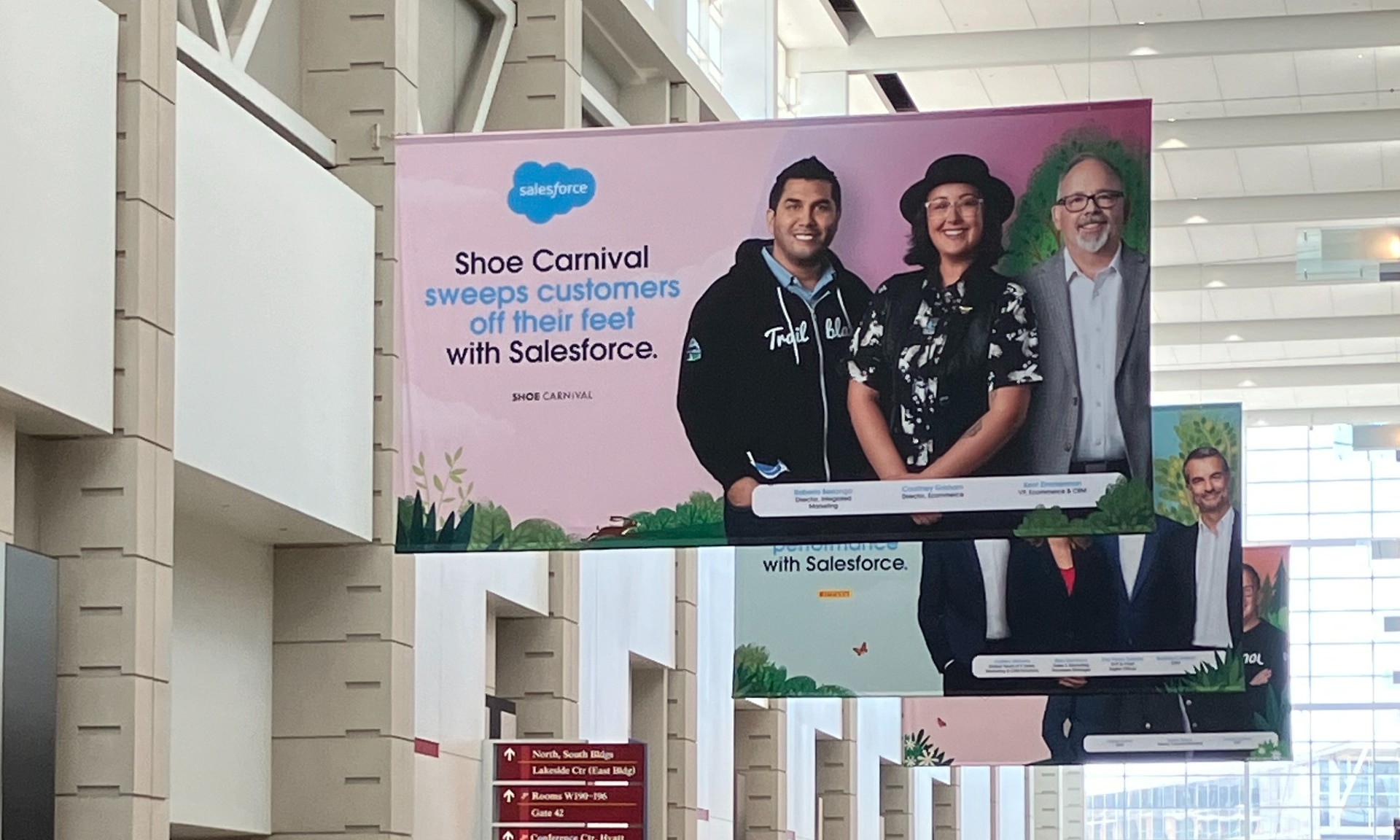
Salesforce launched a collection of new, generative AI-related products at Connections in Chicago this week. They included new Einstein Copilots for marketers and merchants and Einstein Personalization.
To better understand, not only the potential impact of the new products, but the evolving Salesforce architecture, we sat down with Bobby Jania, CMO, Marketing Cloud.
Dig deeper: Salesforce piles on the Einstein Copilots
Salesforce’s evolving architecture
It’s hard to deny that Salesforce likes coming up with new names for platforms and products (what happened to Customer 360?) and this can sometimes make the observer wonder if something is brand new, or old but with a brand new name. In particular, what exactly is Einstein 1 and how is it related to Salesforce Data Cloud?
“Data Cloud is built on the Einstein 1 platform,” Jania explained. “The Einstein 1 platform is our entire Salesforce platform and that includes products like Sales Cloud, Service Cloud — that it includes the original idea of Salesforce not just being in the cloud, but being multi-tenancy.”
Data Cloud — not an acquisition, of course — was built natively on that platform. It was the first product built on Hyperforce, Salesforce’s new cloud infrastructure architecture. “Since Data Cloud was on what we now call the Einstein 1 platform from Day One, it has always natively connected to, and been able to read anything in Sales Cloud, Service Cloud [and so on]. On top of that, we can now bring in, not only structured but unstructured data.”
That’s a significant progression from the position, several years ago, when Salesforce had stitched together a platform around various acquisitions (ExactTarget, for example) that didn’t necessarily talk to each other.
“At times, what we would do is have a kind of behind-the-scenes flow where data from one product could be moved into another product,” said Jania, “but in many of those cases the data would then be in both, whereas now the data is in Data Cloud. Tableau will run natively off Data Cloud; Commerce Cloud, Service Cloud, Marketing Cloud — they’re all going to the same operational customer profile.” They’re not copying the data from Data Cloud, Jania confirmed.
Another thing to know is tit’s possible for Salesforce customers to import their own datasets into Data Cloud. “We wanted to create a federated data model,” said Jania. “If you’re using Snowflake, for example, we more or less virtually sit on your data lake. The value we add is that we will look at all your data and help you form these operational customer profiles.”
Let’s learn more about Einstein Copilot
“Copilot means that I have an assistant with me in the tool where I need to be working that contextually knows what I am trying to do and helps me at every step of the process,” Jania said.
For marketers, this might begin with a campaign brief developed with Copilot’s assistance, the identification of an audience based on the brief, and then the development of email or other content. “What’s really cool is the idea of Einstein Studio where our customers will create actions [for Copilot] that we hadn’t even thought about.”
Here’s a key insight (back to nomenclature). We reported on Copilot for markets, Copilot for merchants, Copilot for shoppers. It turns out, however, that there is just one Copilot, Einstein Copilot, and these are use cases. “There’s just one Copilot, we just add these for a little clarity; we’re going to talk about marketing use cases, about shoppers’ use cases. These are actions for the marketing use cases we built out of the box; you can build your own.”
It’s surely going to take a little time for marketers to learn to work easily with Copilot. “There’s always time for adoption,” Jania agreed. “What is directly connected with this is, this is my ninth Connections and this one has the most hands-on training that I’ve seen since 2014 — and a lot of that is getting people using Data Cloud, using these tools rather than just being given a demo.”
What’s new about Einstein Personalization
Salesforce Einstein has been around since 2016 and many of the use cases seem to have involved personalization in various forms. What’s new?
“Einstein Personalization is a real-time decision engine and it’s going to choose next-best-action, next-best-offer. What is new is that it’s a service now that runs natively on top of Data Cloud.” A lot of real-time decision engines need their own set of data that might actually be a subset of data. “Einstein Personalization is going to look holistically at a customer and recommend a next-best-action that could be natively surfaced in Service Cloud, Sales Cloud or Marketing Cloud.”
Finally, trust
One feature of the presentations at Connections was the reassurance that, although public LLMs like ChatGPT could be selected for application to customer data, none of that data would be retained by the LLMs. Is this just a matter of written agreements? No, not just that, said Jania.
“In the Einstein Trust Layer, all of the data, when it connects to an LLM, runs through our gateway. If there was a prompt that had personally identifiable information — a credit card number, an email address — at a mimum, all that is stripped out. The LLMs do not store the output; we store the output for auditing back in Salesforce. Any output that comes back through our gateway is logged in our system; it runs through a toxicity model; and only at the end do we put PII data back into the answer. There are real pieces beyond a handshake that this data is safe.”
-

 SEARCHENGINES5 days ago
SEARCHENGINES5 days agoBillions Of Google goo.gl URLs To 404 In The Future
-
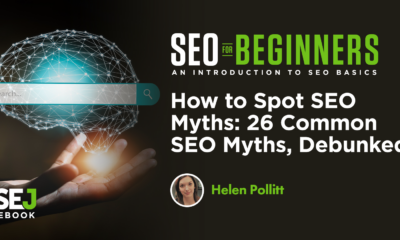
 SEO7 days ago
SEO7 days ago26 Common SEO Myths, Debunked
-
SEARCHENGINES4 days ago
Daily Search Forum Recap: July 22, 2024
-
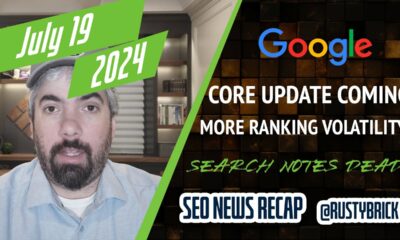
 SEARCHENGINES6 days ago
SEARCHENGINES6 days agoGoogle Core Update Coming, Ranking Volatility, Bye Search Notes, AI Overviews, Ads & More
-

 SEO5 days ago
SEO5 days ago11 Copyscape Alternatives To Check Plagiarism
-
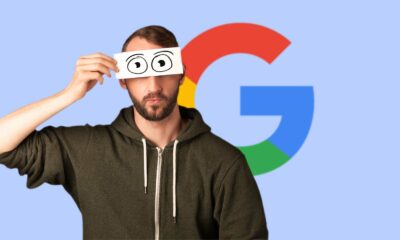
 SEO6 days ago
SEO6 days agoGoogle Warns Of Last Chance To Export Notes Search Data
-
SEARCHENGINES3 days ago
Daily Search Forum Recap: July 23, 2024
-
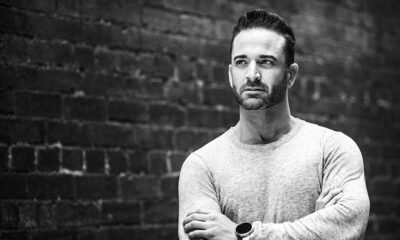
 AFFILIATE MARKETING6 days ago
AFFILIATE MARKETING6 days agoThe Top 5 AI Tools That Can Revolutionize Your Workflow and Boost Productivity


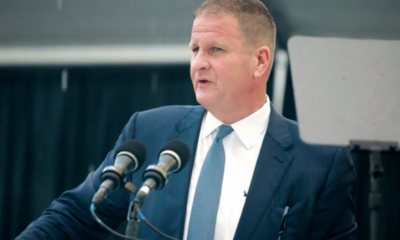

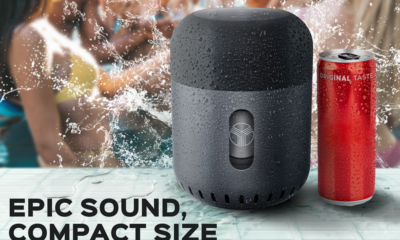





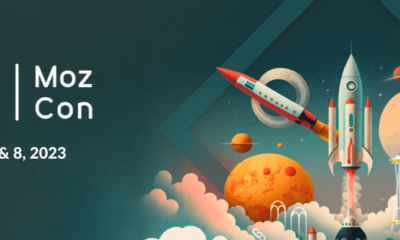





You must be logged in to post a comment Login